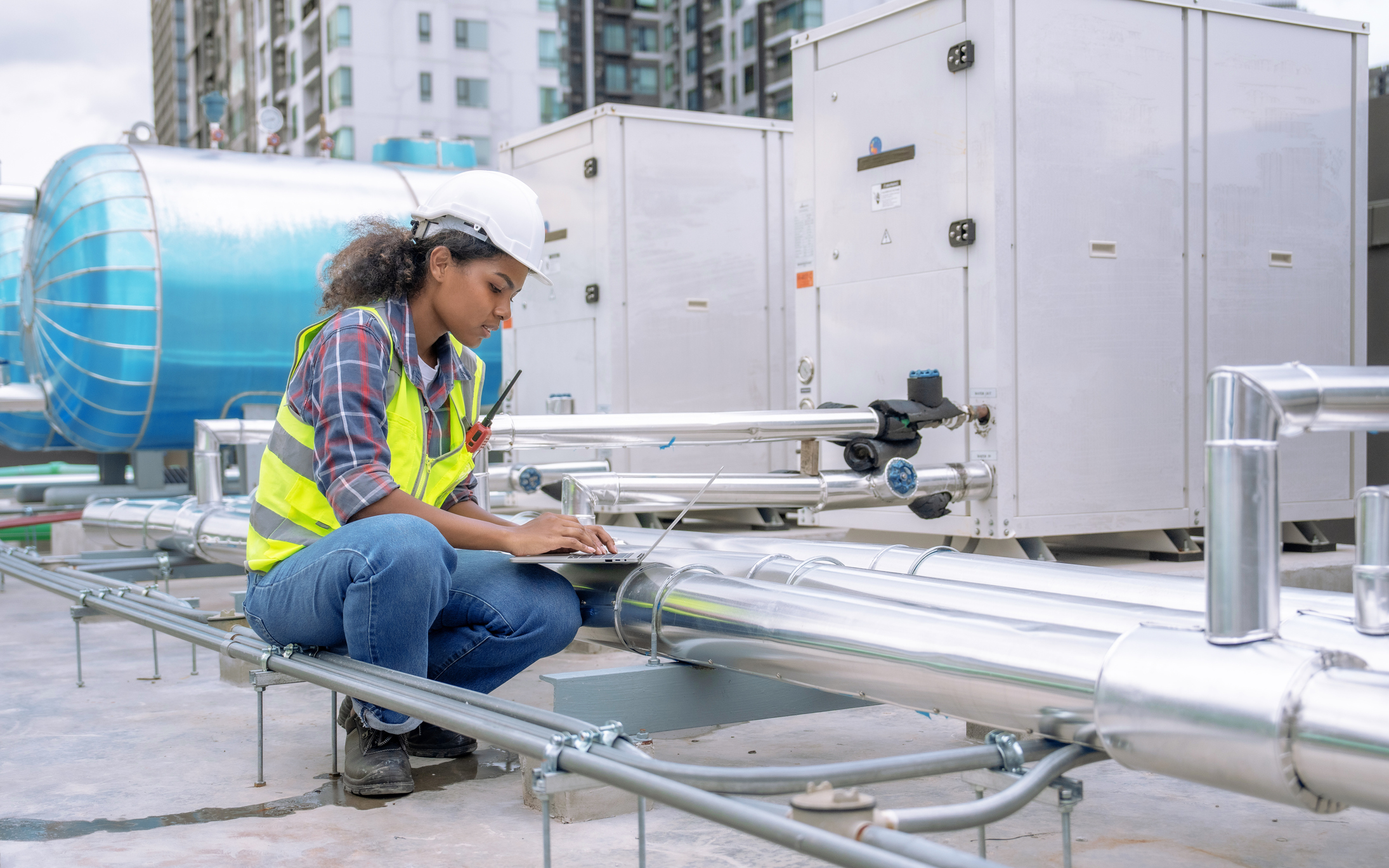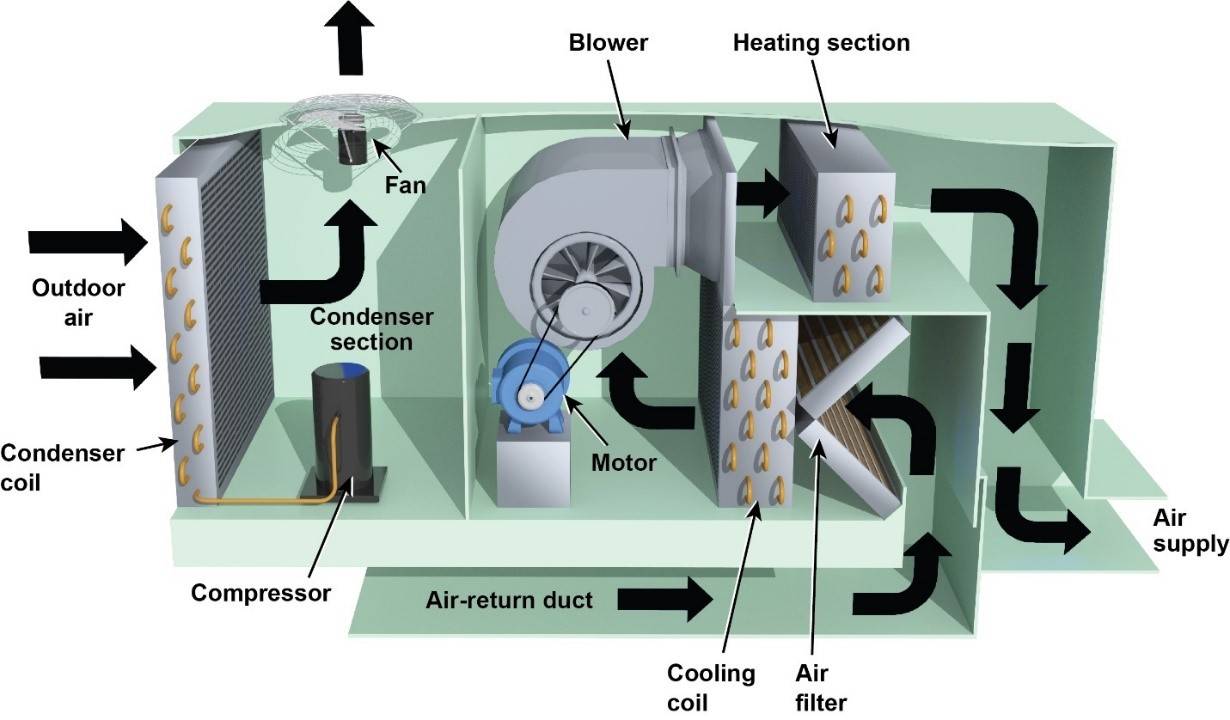Air Conditioning Repair Service to Keep Your Home Amazing and Comfy
Air Conditioning Repair Service to Keep Your Home Amazing and Comfy
Blog Article
An In-Depth Consider Cooling And Heating Solutions and Their Effect on Power Effectiveness and Cost Savings
The function of cooling and heating services in boosting power efficiency and achieving cost financial savings is more essential than ever before, as home owners and businesses seek sustainable remedies in a significantly eco-conscious globe. With technological innovations like wise thermostats and high-efficiency components, the potential for enhancing system performance is substantial. Yet, the real impact of these advancements depends mostly on regular maintenance and proactive issue monitoring. As we check out the complex relationship in between cooling and heating systems and operational expenses, including the change towards eco friendly options, the question occurs: how can these approaches be successfully implemented to maximize both economic and ecological advantages?

Significance of Heating And Cooling Systems
HVAC systems are an essential part of modern buildings, playing an important duty in preserving healthy and comfortable indoor settings. These systems, including air flow, heating, and air conditioning, are essential for controling temperature, moisture, and air quality, consequently guaranteeing the well-being of occupants. Reliable heating and cooling systems add significantly to producing an ideal interior environment, which is important for both residential and business rooms.
In commercial structures, HVAC systems are indispensable to supplying a risk-free and efficient atmosphere. By regulating indoor climate conditions, these systems aid prevent the growth of mold and the spread of airborne contaminants, thus safeguarding the health of staff members and clients. Additionally, in household settings, cooling and heating systems improve living conditions by providing regular thermal comfort and enhancing indoor air top quality, which is vital for general health.
Furthermore, the layout and upkeep of heating and cooling systems have a straight influence on energy usage and operational costs. Correctly made and kept systems can dramatically decrease power usage, leading to reduced energy expenses and a smaller sized carbon footprint. The effectiveness of these systems therefore plays an essential duty in promoting sustainability and power preservation within structures, highlighting their relevance in the contemporary architectural landscape.
Advances in A/c Modern Technology
Advancement in HVAC innovation is changing the method structures manage indoor climates, ushering in a brand-new period of effectiveness and control. Current improvements have actually concentrated on optimizing power consumption while boosting customer comfort. One notable growth is the assimilation of clever thermostats, which use expert system to learn occupancy patterns and readjust temperature levels accordingly, reducing unnecessary energy usage.
Variable Cooling Agent Flow (VRF) systems stand for an additional significant jump onward. These systems enable for specific temperature control in different zones of a building, improving convenience and decreasing power waste. VRF modern technology is specifically valuable for huge industrial spaces, providing versatility and scalability.
In addition, the introduction of Net of Things (IoT) devices has actually transformed a/c systems into interconnected networks with the ability of real-time information collection and analysis. This connectivity allows predictive maintenance, guaranteeing systems operate at peak performance and lessening unexpected downtime.
Moreover, developments in materials and style, such as the use of high-efficiency coils and compressors, have actually improved total system performance - Heating Contractor. The adoption of ecologically pleasant refrigerants additionally emphasizes the industry's commitment to sustainability
These technical innovations are essential in reducing functional prices and environmental influence, setting brand-new requirements for developing climate monitoring.
A/c Upkeep and Efficiency
Making sure optimal efficiency of HVAC systems prolongs beyond technical improvements; it likewise pivots on effective upkeep practices. Regular maintenance is important for maintaining effectiveness, minimizing energy usage, and extending the lifetime of cooling and heating systems. The primary objective is to ensure that all components work at their peak capacity, thereby minimizing energy wastefulness and keeping regular interior convenience levels.
Routine maintenance jobs, such as cleansing or replacing air filters, checking refrigerant degrees, and examining ductwork for leaks, are important for preventing unneeded stress on the system. internet Stopped up or filthy filters can block airflow, creating the system to function more challenging and consume more power. Likewise, poor refrigerant levels can lower cooling efficiency, leading to higher operational expenses.
Furthermore, routine evaluations by qualified experts can recognize potential problems before they rise into pricey repair work or system failures. These evaluations commonly consist of inspecting electrical links, calibrating thermostats, and making certain the overall integrity of the a/c system. By addressing small problems early, homeowners and companies can stay clear of unanticipated failures and enhance energy effectiveness.
Economical Cooling And Heating Solutions
For those aiming to obtain one of the most out of their air flow, home heating, and air conditioning systems without breaking the bank, discovering cost-efficient heating and cooling services can make a significant difference. One prompt action is to spend in programmable thermostats, which enable individuals to set particular temperatures for different times of the day, enhancing power use and reducing unneeded consumption. By automating temperature level adjustments, house owners can attain significant savings on energy costs.
Normal maintenance is an additional crucial component of economical a/c administration. Ensuring that filters are cleaned or changed routinely, ductwork is secured, and units are serviced by professionals can prevent costly repairs and enhance system durability. Precautionary maintenance not just keeps system efficiency but likewise helps in avoiding unforeseen break downs that can bring about costly emergency fixings.
Additionally, retrofitting existing systems with energy-efficient elements, such as variable rate motors or reference high-efficiency compressors, can be a prudent financial investment. These upgrades enhance functional performance, decrease power use, and can typically be applied at a portion of the price of a full system substitute.
Ecological Influence Reduction
Decreasing the environmental influence of heating and cooling systems is vital in today's quest of lasting living. Cooling and heating systems are significant contributors to power usage, accounting for virtually 40% of power use in commercial buildings. This power need typically relies upon nonrenewable fuel sources, resulting in greenhouse gas discharges and ecological destruction. Transitioning to more efficient systems, such as those using eco-friendly energy resources, can substantially alleviate these effects.
Technological improvements in a/c style and operation, including the assimilation of smart thermostats and energy-efficient heatpump, are crucial in reducing carbon impacts. These developments permit optimized energy usage, lessening waste and enhancing overall system efficiency. In addition, taking on regular maintenance techniques makes certain heating and cooling systems operate at peak performance, more reducing unnecessary power usage.
In addition, using eco-friendly cooling agents is crucial, as traditional refrigerants, like CFCs and HCFCs, have been phased out as a result of their ozone-depleting buildings. Modern options, such as hydrofluoroolefins (HFOs), offer minimized environmental dangers, aligning with international ecological protocols. By embracing these sustainable techniques, cooling and heating services can play a transformative duty in reducing ecological influences, promoting energy effectiveness, and cultivating an extra lasting future.
Conclusion

Additionally, the style and upkeep of Cooling and heating systems have a direct effect on energy usage and functional costs. Routine upkeep is vital for maintaining performance, minimizing power consumption, and prolonging the life span of Heating and cooling systems. HVAC systems are significant contributors to energy usage, accounting for virtually 40% of energy usage in industrial structures. In addition, embracing routine maintenance methods makes certain Heating and cooling systems run at peak performance, additional reducing unneeded energy consumption.
The shift to environmentally pleasant Cooling and heating systems additionally promotes and reduces operational expenses sustainability. (Heating Contractor)
Report this page